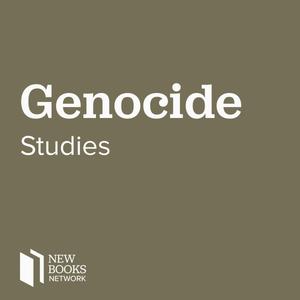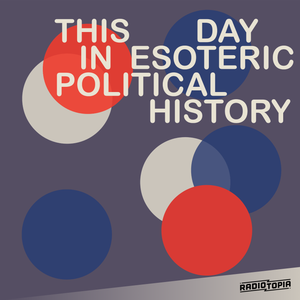
New Books in Genocide Studies
Interviews with Scholars of Genocide about their New Books
- 1 hour 38 minutesKarel Margry, "Nordhausen Concentration Camp" (After the Battle, 2024)
In the history of Nazi concentration camps, and particularly labor camps, there is probably no place that bears the same stigma of wretchedness as 'Dora-Mittelbau' at Nordhausen. Located in the Harz mountains in central Germany, next to a quarry tunnel system in the Kohnstein mountain, it served to house thousands of slave workers for an underground factory known as the Mittelwerk, which produced three of Germany's best-known secret weapons: the V1 flying bomb, the V2 rocket and jet engines for the Me 262 and Ar 234 fighters. With over 20 kilometers of underground galleries, it was the largest underground factory in the world. Many of the inmates died in indescribable misery, being forced to extend the tunnels with meager equipment and under ghastly conditions, sometimes not seeing daylight for weeks on end. Started in August 1943, 'Dora-Mittelbau' in due course became the centre of a whole complex of underground factories in the Nordhausen area, with several subsidiary camps being set up. In all, of some 60,000 prisoners sent there between 1943 and 1945, 20,000 were driven to extinction to implement Nazi Germany's secret weapons program, but they labored late and in vain, for the products they yielded had little impact on the war. The V1 and V2 are the only weapons which cost more lives in production than in deployment: far more people died producing them than were killed from their impact in London, Antwerp and elsewhere.
The history of Nordhausen, already gruesome in itself, ended in a crescendo of violence when, in the final weeks of the war, the surviving inmates were evacuated from the camps in 'death marches'. One group of over a thousand men then became victim of one of the most horrendous of all Nazi atrocities. On April 13, 1945, just outside the town of Gardelegen, their SS camp guards, helped by local troops and Hitlerjugend, locked the prisoners in a big barn and set fire to the inside, burning those inside, killing them with hand-grenades, and shooting anyone who tried to escape from the burning, smoke-filled building. A total of 1,016 men died as a result. When discovered by American troops two days later, Gardelegen quickly became known as the site of one most notorious war crimes committed by the Nazis.
In this book, Karel Margry recounts the history of Nordhausen concentration camp and of the Gardelegen massacre in full detail. Both stories are illustrated with unique Then and Now comparison photographs.
Learn more about your ad choices. Visit megaphone.fm/adchoices
Support our show by becoming a premium member! https://newbooksnetwork.supportingcast.fm/genocide-studies
31 January 2025, 9:00 am - 1 hour 37 minutesEdward Westermann, "Hitler's Ostkrieg and the Indian Wars: Comparing Genocide and Conquest" (U Oklahoma Press, 2016)
As he prepared to wage his war of annihilation on the Eastern Front, Adolf Hitler repeatedly drew parallels between the Nazi quest for Lebensraum, or living space, in Eastern Europe and the United States's westward expansion under the banner of Manifest Destiny. The peoples of Eastern Europe were, he said, his "redskins," and for his colonial fantasy of a "German East" he claimed a historical precedent in the United States's displacement and killing of the native population. Edward B. Westermann examines the validity, and value, of this claim in Hitler's Ostkrieg and the Indian Wars: Comparing Genocide and Conquest (University of Oklahoma Press, 2016).
The book takes an empirical approach that highlights areas of similarity and continuity, but also explores key distinctions and differences between these two national projects. The westward march of American empire and the Nazi conquest of the East offer clear parallels, not least that both cases fused a sense of national purpose with racial stereotypes that aided in the exclusion, expropriation, and killing of peoples. Westermann evaluates the philosophies of Manifest Destiny and Lebensraum that justified both conquests, the national and administrative policies that framed Nazi and U.S. governmental involvement in these efforts, the military strategies that supported each nation's political goals, and the role of massacre and atrocity in both processes. Important differences emerge: a goal of annihilation versus one of assimilation and acculturation; a planned military campaign versus a confused strategy of pacification and punishment; large-scale atrocity as routine versus massacre as exception.
Comparative history at its best, Westermann's assessment of these two national projects provides crucial insights into not only their rhetoric and pronouncements but also the application of policy and ideology "on the ground." His sophisticated and nuanced revelations of the similarities and dissimilarities between these two cases will inform further study of genocide, as well as our understanding of the Nazi conquest of the East and the American conquest of the West.
Learn more about your ad choices. Visit megaphone.fm/adchoices
Support our show by becoming a premium member! https://newbooksnetwork.supportingcast.fm/genocide-studies
29 January 2025, 9:00 am - 55 minutes 42 secondsLeon Saltiel, "The Holocaust in Thessaloniki: Reactions to the Anti-Jewish Persecution, 1942–1943" (Routledge, 2020)
The Holocaust in Thessaloniki: Reactions to the Anti-Jewish Persecution, 1942-1943 (Routledge, 2021) narrates the last days of the once prominent Jewish community of Thessaloniki, the overwhelming majority of which was transported to the Nazi death camp of Auschwitz in 1943.
Focusing on the Holocaust of the Jews of Thessaloniki, this book maps the reactions of the authorities, the Church and the civil society as events unfolded. In so doing, it seeks to answer the questions, did the Christian society of their hometown stand up to their defense and did they try to undermine or object to the Nazi orders? Utilizing new sources and interpretation schemes, this book will be a great contribution to the local efforts underway, seeking to reconcile Thessaloniki with its Jewish past and honour the victims of the Holocaust.
The first study to examine why 95 percent of the Jews of Thessaloniki perished--one of the highest percentages in Europe--this book will appeal to students and scholars of the Holocaust, European History and Jewish Studies.
Learn more about your ad choices. Visit megaphone.fm/adchoices
Support our show by becoming a premium member! https://newbooksnetwork.supportingcast.fm/genocide-studies
26 January 2025, 9:00 am - 1 hour 24 minutesAnthony McElligott, "The Last Transport: The Holocaust in the Eastern Aegean" (Bloomsbury, 2024)
Today I talked to Anthony McElligott about The Last Transport: The Holocaust in the Eastern Aegean (Bloomsbury, 2024).
The deportation of 1,755 Jews from the islands of Rhodes and Cos in July 1944, shortly after the last deportation from Hungary, was the last transport to leave Greece for Auschwitz and brought to a close the last significant phase of the genocide of Europe's Jews (notwithstanding the death marches). Within six weeks of their deportation, the Germans were retreating from Greece and the Balkans as Hitler's empire shrank. This last deportation is frequently acknowledged in Holocaust literature but its significance for our understanding of the Nazi genocide of the Jews remains largely overlooked. The timing of the transport, when it was clear to the German military elite that Nazi Germany had lost the war, raises important questions in relation to long-term ideological Nazi goals and the immediate contingency thrown up by war.
Anthony McElligott, in this account of the last Greek transport of Jews to Auschwitz, tells a compelling story of this previously underexplored event and sheds light on an important aspect of the Holocaust through an in-depth study of one Eastern Mediterranean community.
Roberto Mazza is currently a visiting scholar at the Buffett Institute for Global Affairs at Northwestern University. He is the host of the Jerusalem Unplugged Podcast and to discuss and propose a book for interview can be reached at [email protected]. Twitter and IG: @robbyref Website: www.robertomazza.org
Learn more about your ad choices. Visit megaphone.fm/adchoices
Support our show by becoming a premium member! https://newbooksnetwork.supportingcast.fm/genocide-studies
21 January 2025, 5:00 am - 1 hour 17 minutesMark Celinscak, "Distance from the Belsen Heap: Allied Forces and the Liberation of a Nazi Concentration Camp" (U Toronto Press, 2015)
The Allied soldiers who liberated the Nazi concentration camp at Bergen-Belsen in April 1945 were faced with scenes of horror and privation. With breathtaking thoroughness, Distance from the Belsen Heap: Allied Forces and the Liberation of a Nazi Concentration Camp (U Toronto Press, 2015) documents what they saw and how they came to terms with those images over the course of the next seventy years. On the basis of research in more than seventy archives in four countries, Mark Celinscak analyses how these military personnel struggled with the intense experience of the camp; how they attempted to describe what they had seen, heard, and felt to those back home; and how their lives were transformed by that experience. He also brings to light the previously unacknowledged presence of hundreds of Canadians among the camp's liberators, including noted painter Alex Colville.
Distance from the Belsen Heap examines the experiences of hundreds of British and Canadian eyewitnesses to atrocity, including war artists, photographers, medical personnel, and chaplains. A study of the complicated encounter between these Allied soldiers and the horrors of the Holocaust, Distance from the Belsen Heap is a testament to their experience.
Learn more about your ad choices. Visit megaphone.fm/adchoices
Support our show by becoming a premium member! https://newbooksnetwork.supportingcast.fm/genocide-studies
16 January 2025, 9:00 am - 54 minutes 56 secondsSusan A. Brewer, "The Best Land: Four Hundred Years of Love and Betrayal on Oneida Territory" (Three Hills, 2024)
The 9/11 attacks, as well as the ones in Madrid, London, Paris and Brussels; the genocides in Nazi Germany, Rwanda and Cambodia; the torture in dictatorial regimes; the wars in former Yugoslavia, Syria and Iraq and currently in Ukraine; the sexual violence during periods of conflict, all make us wonder: why would anyone do something like that? Who are these people?
Drawing on 30 years of research, Alette Smeulers explores the perpetrators of mass atrocities such as war crimes, crimes against humanity, genocide and terrorism. Examining questions of why people kill and torture and how mass atrocities can be explained, Smeulers presents a typology of perpetrators, with different ranks, roles and motives. Devoting one chapter to each type of perpetrator, Perpetrators of Mass Atrocities: Terribly and Terrifyingly Normal? (Routledge, 2023) combines insights from academic research with illustrative case studies of well-known perpetrators, from dictators to middlemen, to lower ranking officials and terrorists. Their stories are explored in depth as the book examines their behaviour and motivation. Perpetrators of Mass Atrocities thus provides a comprehensive understanding of the causes of extreme mass violence. Such knowledge not only can help the international criminal justice system to be able to attribute blame in a fairer way but can also assist in preventing such atrocities being committed on the current scale. Perpetrators of Mass Atrocities is essential reading for all those interested in war crimes, genocide, terrorism and mass violence.
Learn more about your ad choices. Visit megaphone.fm/adchoices
Support our show by becoming a premium member! https://newbooksnetwork.supportingcast.fm/genocide-studies
12 January 2025, 9:00 am - 1 hour 9 minutesGervase Phillips, "Persecution and Genocide: A History" (Routledge, 2024)
Gervase Phillips' book Persecution and Genocide: A History (Routledge, 2024) offers an unparalleled range of comparative studies considering both persecution and genocide across two thousand years of history from Rome to Nazi Germany, and spanning Europe, Asia, Africa, and the Americas. Topics covered include the persecution of religious minorities in the ancient world and late antiquity, the medieval roots of modern antisemitism, the early modern witch-hunts, the emergence of racial ideologies and their relationship to slavery, colonialism, Russian and Soviet mass deportations, the Armenian genocide, and the Holocaust. It also introduces students to significant, but less well known, episodes, such as the Albigensian Crusade and the massacres and forced expulsions suffered by the Circassians at the hands of imperial Russia in the 1860s, as the world entered an 'age of genocide'.
By exploring the ideological motivations of the perpetrators, the book invites students to engage with the moral complexities of the past and to reflect upon our own situation today as the 'legatees of two thousand years of persecution'. Gervase Phillips's book is the ideal introduction to the subject for anyone interested in the long and complex history of human persecution.
Learn more about your ad choices. Visit megaphone.fm/adchoices
Support our show by becoming a premium member! https://newbooksnetwork.supportingcast.fm/genocide-studies
10 January 2025, 9:00 am - 1 hour 23 minutesJonathan R. Beloff, "The Strategy to End the Genocide Against the Tutsi in Rwanda" (Lexington Books, 2025)
Utilizing Strategic Theory as a framework for warfare and incorporating the testimonies and experiences of eight genocide survivors as well as military personnel, Jonathan R. Beloff's The Strategy to End the Genocide Against the Tutsi in Rwanda: Understanding the War in Kigali (Lexington Books, 2025) examines the various tactics and operations used by the Rwandan Patriotic Army to provide critical insights into decision-making during the Rwandan Civil War and genocide.
Learn more about your ad choices. Visit megaphone.fm/adchoices
Support our show by becoming a premium member! https://newbooksnetwork.supportingcast.fm/genocide-studies
9 January 2025, 9:00 am - 1 hour 1 minuteElissa Bemporad, "Legacy of Blood: Jews, Pogroms, and Ritual Murder in the Lands of the Soviets" (Oxford UP, 2019)
The history of antisemitism in Europe stretches back as far as Ancient Rome, but persecutions of Jews became widespread during the Crusades, beginning in the early 11th century when the wholesale massacre of entire communities became commonplace. From the 12th century, the justification for this state-sanctioned violence became the blood libel accusation: the idea that Jews ritually murdered Christian children and used their blood in the celebration of Passover.
Nowhere in Europe was the blood libel more tenacious, credible, and long lived than in the Russian Empire, particularly during the late Imperial period, which saw large scale pogroms and harsh restrictions visited upon the empire's Jewish population. The Russian Revolution of 1917 attracted many Jews to its cause, thanks in large measure to Bolshevik condemnations of antisemitism and persecution of the Jewish minority. These numbers grew in the wake of the brutal Civil War that followed from 1918 - 1922 when the White Army revived the pogrom with particular vigor.
What happened after the Bolshevik victory is the subject of Elissa Bemporad's new book, Legacy of Blood: Jews, Pogroms, and Ritual Murder in the Lands of the Soviets (Oxford UP, 2019), which won the National Jewish Book Award (Modern Jewish Thought and Experience). Bemporad probes the underbelly of the "Soviet myth"— that the USSR had eradicated the pogroms, banished the notion of a blood libel to the scrapheap of other opiates for the people, and vanquished antisemitism as part of the regime's broad anti-religious campaign — and discovers that both pogroms and the blood libel had a robust afterlife in the USSR.
As she traces changing attitudes towards Jews in the USSR, Bemporad also examines the uneasy and often ambivalent but mutually dependent, and ever-shifting relationship between the regime and the Jewish population as the Soviet century unfolds. Legacy of Blood looks at the re-emergence of overt antisemitism in the occupied territories of the USSR during World War II and the troubled return of the Jews to mainstream society after the war. The result is a meticulously researched, thought-provoking, and eminently readable book that adds much to both Jewish and Russian historical scholarship.
Elissa Bemporad is an Associate Professor of History at CUNY Graduate Center and the Jerry and William Ungar Chair in East European Jewish History, Queens College of CUNY. She is the author of Becoming Soviet Jews: The Bolshevik Experiment in Minsk (Indiana University Press, 2013) and the forthcoming A Comprehensive History of the Jews in the Soviet Union, vol I (NYU Press).
Jennifer Eremeeva is an American expatriate writer who writes about travel, culture, cuisine and culinary history, Russian history, and Royal History, with bylines in Reuters, Fodor's, USTOA, LitHub, The Moscow Times, and Russian Life. She is the award-winning author of Lenin Lives Next Door: Marriage, Martinis, and Mayhem in Moscow and Have Personality Disorder, Will Rule Russia: A Pocket Guide to Russian History.
Learn more about your ad choices. Visit megaphone.fm/adchoices
Support our show by becoming a premium member! https://newbooksnetwork.supportingcast.fm/genocide-studies
7 January 2025, 9:00 am - 1 hour 26 secondsBenjamin Meiches, "The Politics of Annihilation: A Genealogy of Genocide" (U Minnesota Press, 2019)
In The Politics of Annihilation: A Genealogy of Genocide (University of Minnesota Press, 2019),Benjamin Meiches takes a novel approach to the study of genocide by analyzing the ways in which ideas, concepts, and understandings about what genocide is and how it is to be prevented have become entrenched politically and intellectually. At the center of this analysis is what Meiches refers to throughout his text as the hegemonic understanding of genocide. Using what Michel Foucault describes as genealogy, Meiches set out to evaluate the process by which the concept of genocide has become intelligible. In doing so, Meiches offers significant evidence in support of many of the emerging critiques of the field of genocide studies. Meiches also inspires reflective and introspective thinking regarding the ways in which genocide scholarship contributes to the maintenance of a hegemonic understanding of genocide.
Learn more about your ad choices. Visit megaphone.fm/adchoices
Support our show by becoming a premium member! https://newbooksnetwork.supportingcast.fm/genocide-studies
7 January 2025, 9:00 am - 2 hours 7 minutesDoris L. Bergen, "Between God and Hitler: Military Chaplains in Nazi Germany" (Cambridge UP, 2023)
During the Second World War, approximately 1000 Christian chaplains accompanied Wehrmacht forces wherever they went, from Poland to France, Greece, North Africa, and the Soviet Union. Chaplains were witnesses to atrocity and by their presence helped normalize extreme violence and legitimate its perpetrators. Military chaplains played a key role in propagating a narrative of righteousness that erased Germany's victims and transformed the aggressors into noble figures who suffered but triumphed over their foes.
Between God and Hitler: Military Chaplains in Nazi Germany (Cambridge UP, 2023) is the first book to examine Protestant and Catholic military chaplains in Germany from Hitler's rise to power, to defeat, collapse, and Allied occupation. Drawing on a wide array of sources - chaplains' letters and memoirs, military reports, Jewish testimonies, photographs, and popular culture - this book offers insight into how Christian clergy served the cause of genocide, sometimes eagerly, sometimes reluctantly, even unknowingly, but always loyally.
Learn more about your ad choices. Visit megaphone.fm/adchoices
Support our show by becoming a premium member! https://newbooksnetwork.supportingcast.fm/genocide-studies
2 January 2025, 9:00 am - More Episodes? Get the App
Your feedback is valuable to us. Should you encounter any bugs, glitches, lack of functionality or other problems, please email us on [email protected] or join Moon.FM Telegram Group where you can talk directly to the dev team who are happy to answer any queries.
 This Day in Esoteric Political History
This Day in Esoteric Political History
 The Ezra Klein Show
The Ezra Klein Show
 Political Gabfest
Political Gabfest
 Fresh Air
Fresh Air
 New Books in Military History
New Books in Military History
 On the Media
On the Media